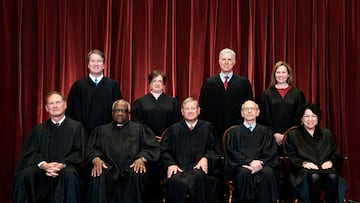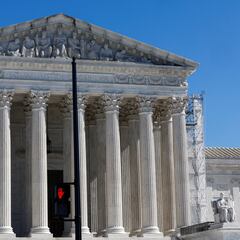Who was Justice Stephen Breyer appointed by? How long was he on US Supreme Court?
The former member of the Supreme Court will be speaking to Stephen Colbert tonight about his new book.

Tonight, viewers of the Late Show with Stephen Colbert will not be seeing any famous actors or singers, rather an appearence by former justice Stephen Breyer. He had a near 30-year career on the US Supreme Court after being first nominated in 1994.
He was regarded as a centrist or moderate liberal on the Court, forming part of the liberal bloc in key decisions before his retirement in 2022.
How Breyer became a Supreme Court justice
Born on August 15, 1938, in San Francisco, California, Breyer has held several prominent positions within the legal community. He served as a law clerk for Supreme Court Justice Arthur Goldberg and later worked as a professor at Harvard Law School, where he specialised in administrative law.
Breyer’s name had been considered when deciding who should fill Byron White’s seat in 1993. In the end Ruth Bader Ginsberg was nominated to fill the vacancy left by White, and Breyer would be nominated to full Harry Blackmum’s seat the following year.
He testified in front of the Senate for over seventeen hours, and in the end was confirmed by a 87 to 9 vote on 29 July, 1994.
One of his most notable rulings was the case of Glossip v. Gross in 2015, relating to the death penalty. Breyer dissented on the 5–4 vote writingm “For the reasons I have set forth in this opinion, I believe it highly likely that the death penalty violates the Eighth Amendment. At the very least, the Court should call for full briefing on the basic question.”
The Eighth Amendment to the United States Constitution protects against three things
- Excessive bail: This means that the court cannot set a bail amount so high that a person accused of a crime cannot realistically afford to pay it.
- Excessive fines: Similar to bail, the government cannot impose a financial penalty that's so large it essentially bankrupts the person being punished.
- Cruel and unusual punishments: This is the most debated part of the Eighth Amendment and the most important when discussing Breyer's comments. It prohibits punishments that are seen as barbaric or unnecessarily cruel.
Related stories
In July 2020, when another case relating to the death penalty came before the court, he reiterated his issues with execution saying “As I have previously written, the solution may be for this Court to directly examine the question whether the death penalty violates the Constitution.”
There have been no changes to the death sentence.

